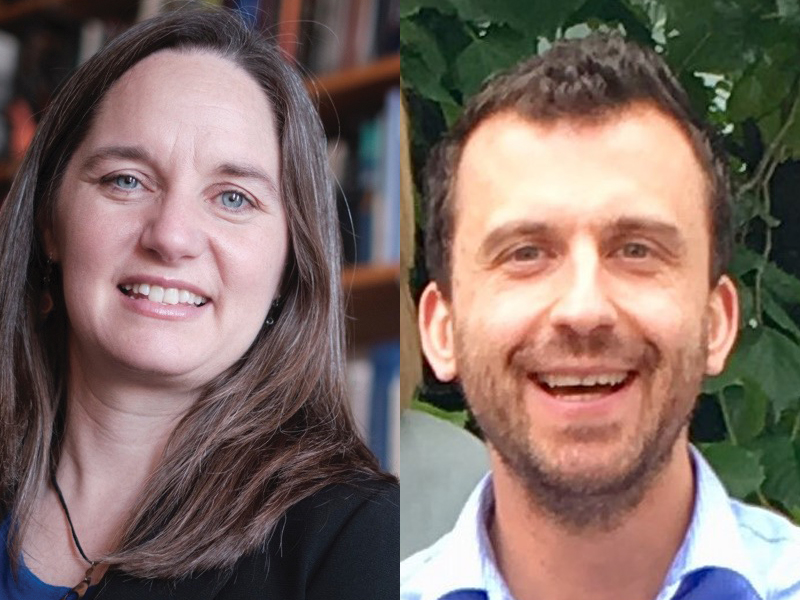
Hallucinogens like ecstasy and magic mushrooms are being used in the treatment of depression and post-traumatic stress disorder, but the risks may outweigh the benefits.
Erika Dyck, Canada research chair and professor in history of health and social justice at the University of Saskatchewan
Psychedelics may conjure images of beatniks, hippies and Deadheads, but recent medical research shows they have significant potential for treating mental disorders and deserve a retrial.
Since 2017, the U.S. Food and Drug Administration has designated some psychedelics as “breakthrough” therapies, meaning they’re fast-tracked and represent significantly better options than anything that’s currently available.
Read: Webinar coverage: Depression in the workplace and redesigning employee support
Today, psychedelics — especially MDMA and psilocybin — are being used to treat major depression, anxiety (including end-of-life anxiety) and post-traumatic stress disorder. And this is just the tip of the iceberg. Psychedelic science is a booming business, tackling an expanding list of disorders and offering a different way of thinking about mental health.
Canada is part of this psychedelic renaissance. In 2020, Health Canada granted a handful of exemptions to use psilocybin for end-of-life anxiety. Those numbers are growing and Canadians are joining people in other jurisdictions, like Denver and Oregon, to demand greater access to psychedelics as a cost-effective and sustainable option for mental health. A 2021 Nanos poll found widespread support for regulated access.
The real potential for psychedelics lies in their capacity to change how we think about mental health. A 1950s generation of scientists had identified the capacity for psychedelics to disrupt entrenched patterns of behaviour — both in terms of psychiatric treatments and in how methods are designed to clinically evaluate drugs. Although this early research demonstrated significant therapeutic benefits, it was overwhelmed by a cultural backlash against the non-medical use of drugs.
Read: Survey finds majority of Gen Z, millennials dealing with anxiety, depression
Re-investing in psychedelics now has the potential to alter the therapeutic landscape for people who can benefit from these breakthrough therapies, but perhaps more importantly, a return of psychedelic science as the capacity to update our ideas about the harms and risks of drugs in our modern world.
John Kelly, clinical lecturer in psychiatry at Trinity College of Dublin’s school of medicine
When used in a supportive environment with psychological support, psychedelics can lead to improvements in mood, anxiety and quality of life, according to two decades of clinical evidence. These findings were confirmed by results from the largest ever clinical trial of psilocybin therapy for people who suffer from treatment-resistant depression, with phase-three trials launching soon. Regulatory approvals for psilocybin therapy for other mental-health conditions may follow.
However, as psilocybin therapy advances towards the clinic, it’s vital to be mindful of past mistakes, such as over-exuberance and non-scientific ideology. While psychedelic therapy can lead to transformative therapeutic experiences for many people with mental-health disorders, not everyone will respond positively, necessitating a tempering of expectations. Advancing research into methods to increase the response rate is a major objective.
Read: Coverage of the 2021 Mental Health Summit
Alongside the psychedelic research re-explosion, recreational use is increasing, often in suboptimal settings without the correct preparation or support. This is of particular concern for vulnerable people with underlying susceptibilities to psychotic disorders, which can be exacerbated by psychedelics. Another area misaligned with the best available science relates to the increasing popularity of microdosing, for which there’s currently no evidence to show effectiveness over placebo.
Notwithstanding the caveats, psychedelics hold major promise as therapeutic tools, provided proper screening measures and high-quality psychological support sessions with trained professionals before, during and after psychedelic administration is in place. Legal reclassification to expedite research and the delivery of psychedelic therapy may prove helpful.
Perhaps the greatest benefits to those with non-psychotic mental-health issues — and to society — will emanate from the integration of properly resourced, high-quality psychedelic therapy into the public psychiatry health system.
Read: Is private and public health care ready for a mental-health tsunami?
